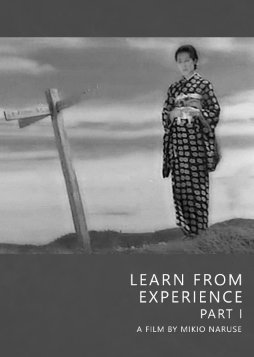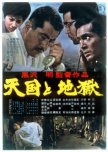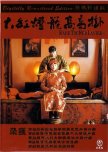
Cette critique peut contenir des spoilers
"She cries and calls his name, but there is no answer"
Director Naruse Mikio developed a two-part movie from a novel written by Kicuchi Kan. As with many of his films, he centered the film around a woman, one who had been done wrong, and must find her way by herself.Toyomi and Shintaro were in love and planning to marry, that is until he visited his family. His father who had brought their rice company near bankruptcy needed Shintaro to marry someone who would bring in a large dowry. Toyomi's family was comfortable but not able to afford the money he needed. The father also wanted someone whom he felt would be a better fit for Shintaro's future as a diplomat. Initially, Shintaro agreed to meet Yurie, knowing he was not going to marry her. This being a Naruse film, Shintaro fell for modern Yurie almost immediately. And before you could say, duplicitous jerk, he was ghosting Toyomi way before cell phones were invented.
The best part of this film was that the women were portrayed as individuals. Toyomi was a traditional young woman who always wore a kimono. She was devoted to Shintaro and to her friend. Even with her devotion she could still see the writing on the wall with Shintaro. Her best friend, Michiko, who wore Western clothes and appeared more modern was fiercely loyal to Toyomi even as she readied for her own wedding. Yurie, was not the devil in disguise, even though she wore the most stylish of Western clothes, rode horses and spoke her mind. She might not have been head over heels in love with Shintaro, but she was willing to go along with her family when he didn't seem like he was unreasonable. Good luck, girl. As Toyomi and Michiko had discussed, "marriage is something of a gamble."
Shintaro was the weakest character. He used Toyomi and then on the turn of a dime he was in love with Yurie and willing to completely abandon Toyomi. He had loved her until someone better came along. His personality was bland and selfish. If he'd been honest with Toyomi, she might have been more understanding. The problem for her was that he tried to place the blame on his family, but unlike her he wasn't devastated which spoke volumes. To make things worse, she had a secret she was going to share with him until he enraged her with his false heart. Part one ended with the revelation of Toyomi's secret in a letter to Michiko.
Irie Takako gave traditional Toyomi a backbone and clear eyes. Takehisa Chieko made the other woman, Yurie, energetic and sympathetic. Aizome Yumeko as Michiko brought just the right amount of energy to the best friend's role. Takada Minoru was saddled with uninteresting, cowardly Shintaro and did nothing to elevate the character or performance.
I'm looking forward to the second part to see how this story plays out and how life turns out for the three women. My concern is that there may not be enough melodrama to fill two films and that Shintaro won't receive proper retribution for his disloyalty and poor treatment of Toyomi.
2/6/23
Cet avis était-il utile?

















